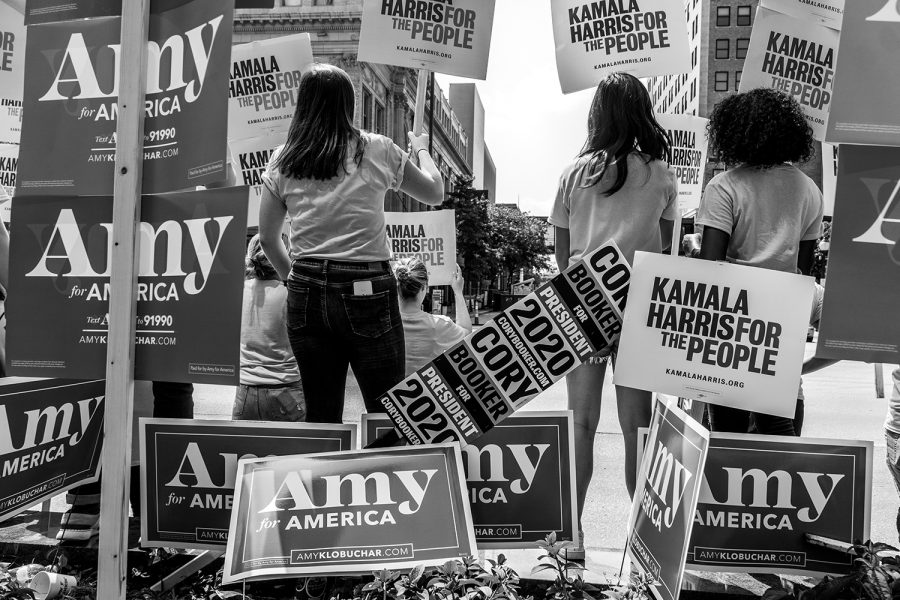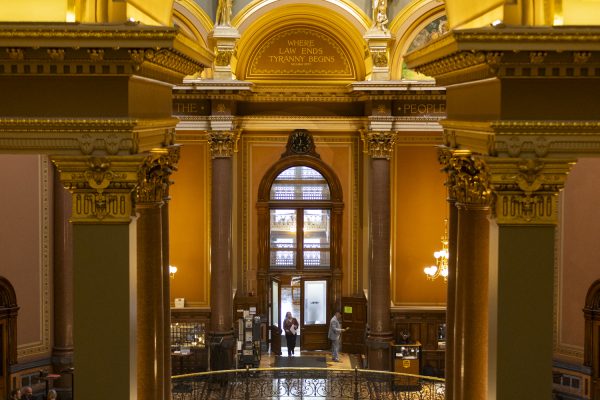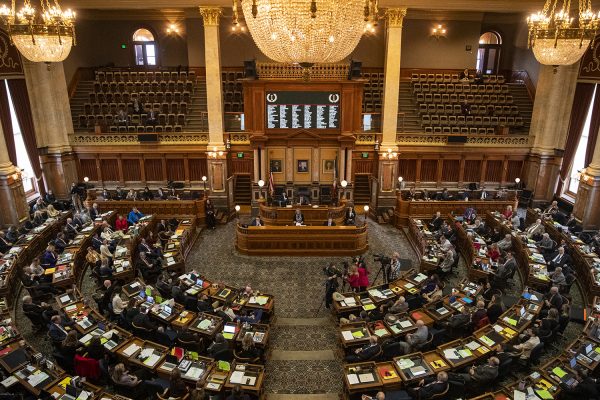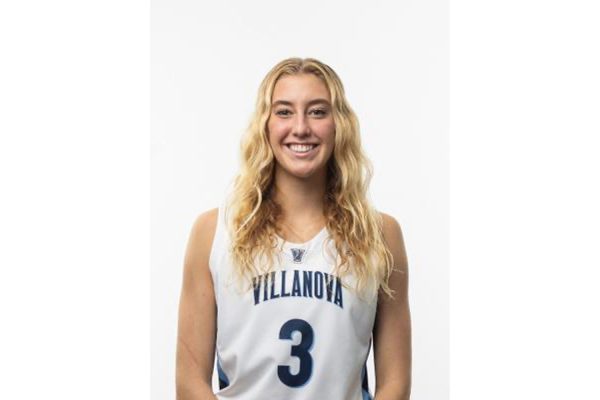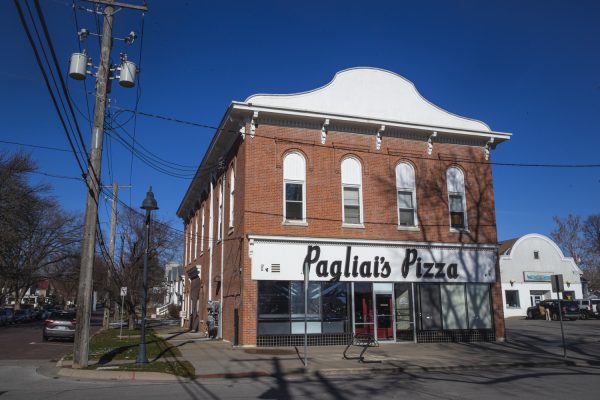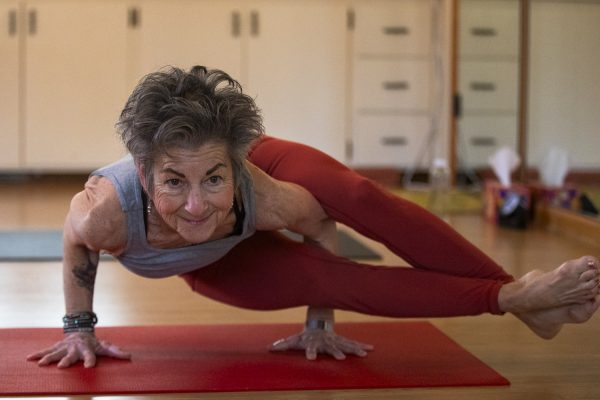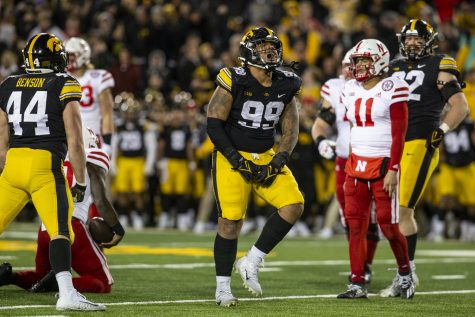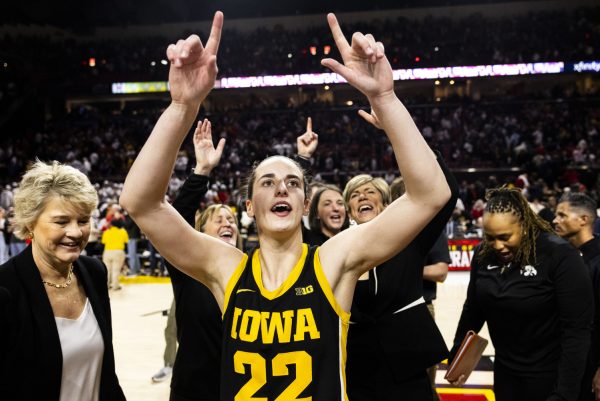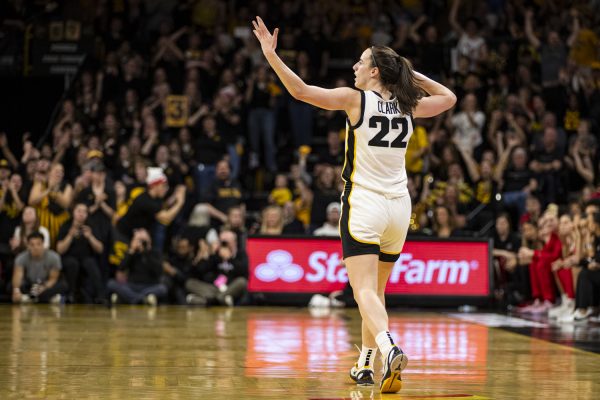Iowans react to the first round of Democratic presidential-nomination debates
The first round of the Democratic presidential-nomination debates were held in Miami Wednesday night, and some Iowans say that seeing 10 candidates side-by-side did not help them in narrowing down a favorite.
Supporters of Kamala Harris outside of the Doubletree Hilton Hotel in Cedar Rapids on Sunday, June 9, 2019. 19 democrats spoke at the Iowa Democratic Party Hall of Fame.
June 26, 2019
The first round of Democratic debates for the presidential nomination took place on the evening of June 26 in Miami, during which candidates talked about family separation at the U.S.-Mexico border, tensions with Iran, climate change, and universal health care.
Because of the large number of qualifying candidates, the debates have been split up into two nights, with 10 candidates on June 26 and 10 debating on June 27. In order for candidates to qualify, the candidate had to either have 65,000 unique campaign contributions or poll at 1 percent from three different polls approved by the Democratic National Committee.
These are the candidates who debated on June 26:
- Bill de Blasio, NYC mayor
- Ohio Rep. Tim Ryan
- Julián Castro, former Housing secretary
- Sen. Cory Booker of New Jersey
- Sen. Elizabeth Warren of Massachusetts
- Beto O’Rourke, former Texas representative
- Sen. Amy Klobuchar of Minnesota
- Hawaii Rep. Tulsi Gabbard
- Washington Gov. Jay Inslee
- John Delaney, former Maryland representative
Steve Bullock, governor of Montana, originally qualified to take the debate stage, but the DNC ruled a poll number from ABC News/Washington Post to not count.
Rep. Seth Moulton of Massachusetts and Mayor Wayne Messam of Miramar, Florida, also did not qualify for the June 26 and 27 debates.
Bret Nilles, the chair of Linn County Democratic Central Committee, said seeing 10 candidates side-by-side actually made it harder for him to pick a favorite because he didn’t see any real weaknesses and felt they all offered strong opinions.
Nilles also said he didn’t care for a lot of the candidates targeting President Trump in their answers.
“I think it wasted too much time when they could’ve been talking about the issues,” Nilles said. “I think most of the Democrats agree we need to replace Donald Trump.”
Fred Grunder, the Republican county chair of Muscatine County, said he thinks the Democratic candidates are making a mistake by directly attacking Trump because once election season picks up, the candidates will need to have more comprehensive policy proposals.
“I think after this first debate, some of the gloves will start to come off,” Grunder said, noting that most of the candidates have been “decent” to each other so far. “Mostly what [the debates are] going to be is, ‘Do you hate Trump more than the other guy.’
”
On the topic of tensions between the U.S. and Iran, all the candidates except Cory Booker raised their hands in support of renegotiating a nuclear deal with Iran. Other candidates said the original deal was imperfect, but the U.S. should not have pulled out of the deal.
In the 2015 deal, Iran agreed to limit nuclear activities and to allow international inspectors. In return, the U.S. lifted economic sanctions. However, much of the international community was skeptical about how peaceful Iran’s nuclear program was.
“Donald Trump told us he would give us a better deal,” Klobuchar said, saying the U.S. is “one tweet away” from going to war with Iran.
Laura Hubka, Democratic chair of Howard County, said that as a veteran, she does not believe Iran is the most pressing foreign-policy issue. She hopes Democrats focus more on issues with Russian interference in elections and Trump’s trade policies, which have led to a trade war with China and U.S. neighbors.
“We need to be very careful about our trade policies with China — living here in Iowa, farmers all around me are talking about how they’re really hurting,” she said. “I know several farmers who have voted for Trump who have really soured on him because of all the trade wars that are going on.”
Similar to Nilles, Hubka said she liked something about nearly all of the candidates — she felt the debate did not narrow the large field of candidates.
O’Rourke highlighted the flooding of the Missouri River in southwestern Iowa as an example of climate change, saying he wants to reduce fossil-fuel emissions by expanding the use of electric cars.



